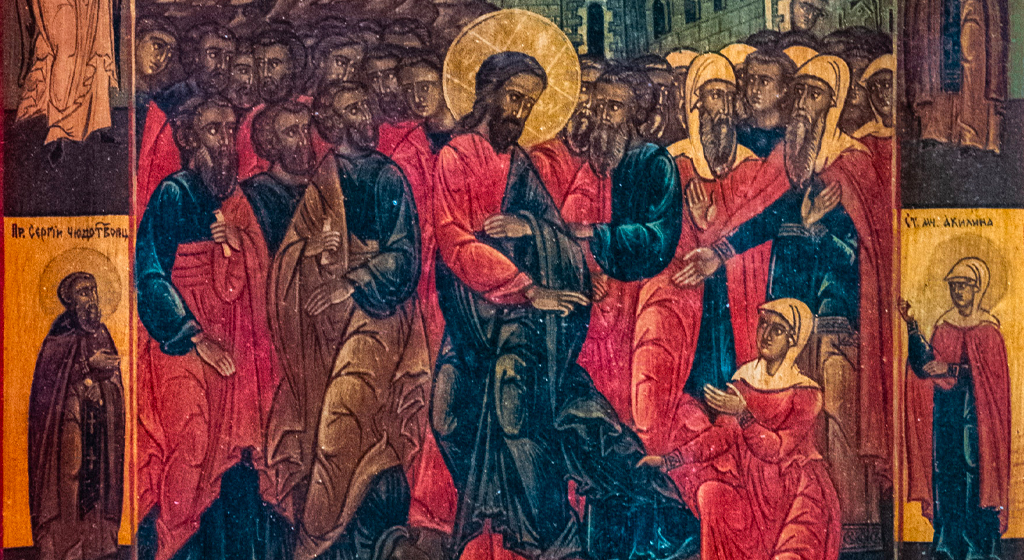Memory of the Poor
Reading of the Word of God
Alleluia, alleluia, alleluia
This is the Gospel of the poor,
liberation for the imprisoned,
sight for the blind,
freedom for the oppressed.
Alleluia, alleluia, alleluia
Exodus 1,8-14.22
Then there came to power in Egypt a new king who had never heard of Joseph. 'Look,' he said to his people, 'the Israelites are now more numerous and stronger than we are. We must take precautions to stop them from increasing any further, or if war should break out, they might join the ranks of our enemies. They might take arms against us and then escape from the country.' Accordingly they put taskmasters over the Israelites to wear them down by forced labour. In this way they built the store-cities of Pithom and Rameses for Pharaoh. But the harder their lives were made, the more they increased and spread, until people came to fear the Israelites. So the Egyptians gave them no mercy in the demands they made, making their lives miserable with hard labour: with digging clay, making bricks, doing various kinds of field -- work -- all sorts of labour that they imposed on them without mercy. Pharaoh then gave all his people this command: 'Throw every new-born boy into the river, but let all the girls live.'
Alleluia, alleluia, alleluia
The Son of Man came to serve,
whoever wants to be great
should become servant of all.
Alleluia, alleluia, alleluia
Since its beginning the book of Exodus does not deal anymore with the vents related to the Patriarchs rather it opens the story of the people of Israel. Joseph, Jacob's son, is not there anymore to lead Egypt. Now the new pharaoh fears the numerical growth of the children of Israel. According to him such a numerous and not at all integrated ethnic group is dangerous for the peaceful coexistence of his kingdom. Therefore, he decides to subjugate them to his authority. The measures decided by Pharaoh are burdensome. The first is to subdue the Jews to forced labour -a true slavery - to build two new cities, Pithom and Rameses. And yet, despite the harshness and cruelty of the work, pharaoh did not see the expected results. With some irony the sacred author notes that, "the more they were oppressed, the more they multiplied and spread, so that the Egyptians came to dread the Israelites." Pharaoh then adopted an even more drastic measure: "Every boy that is born to the Hebrews you shall throw into the Nile, but you shall let every girl live." The decision to eliminate the people of Israel was clear. We know that two women, with the "fear of the Lord" as Scripture often states (Proverbs 1:7), were the means of salvation for the people of Israel. It is now the Lord, and only he, who is leading his people. These women, who were even Egyptian, saved Moses, the liberator, from the waters of the Nile. Weak as the two women, if we too let ourselves be guided by the fear of the Lord can be a beginning of life for others. God blesses and makes fruitful the life of those who serve the poor and the weak in fear of him.
